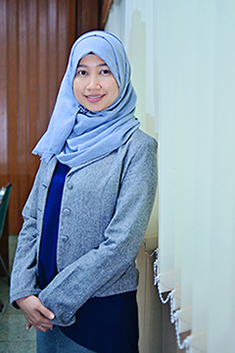Respons Masyarakat Kota Surabaya ketika Mengakses Informasi tentang Obat dan Pengobatan dari Media Sosial
Downloads
Alnjadat, R,Hmaidi, M. M., Samha, T. E., Kilania, M. M. & Hasswan, A. M. (2019). Gender Variations in Social Media Usage and Academic Performance Among the Students of University of Sharjah. Journal of Taibah University Medical Sciences; 14; 390–394.
Antheunis, M. L., Tates, K. & Nieboer, T. E. (2013). Patients' and Health Professionals' Use of Social Media In Health Care: Motives, Barriers and Expectations. Patient Education and Counseling; 92; 426–431.
Asosiasi Penyelenggara Jasa Internet Indonesia (APJII). (2019). Penetrasi & Profil Perilaku Pengguna Internet Indonesia. Jakarta: APJII.
Asur, S. & Huberman, B. A. (2010). Predicting the Future With Social Media. IEEE/WIC/ACM International Conference on Web Intelligence; WI 2010; 492–499.
Crilly, P., Jair, S., Mahmood, Z., Moin Khan, A., Munir, A., Osei-Bediako, I. & Kayyali, R. (2019). Public Views of Different Sources of Health Advice: Pharmacists, Social Media and Mobile Health Applications. International Journal of Pharmacy Practice; 27; 88–95.
Cumbraos-Sánchez, M. J., Hermoso, R., Iñiguez, D., Paño-Pardo, J. R., Allende Bandres, M. Á. & Latorre Martinez, M. P. (2019). Qualitative and Quantitative Evaluation of the Use of Twitter As a Tool of Antimicrobial Stewardship. International Journal of Medical Informatics; 131; 103955.
De Martino, I., D'Apolito, R., McLawhorn, A. S., Fehring, K. A., Sculco, P. K. & Gasparini, G. (2017). Social Media for Patients: Benefits and Drawbacks. Current Reviews in Musculoskeletal Medicine;10; 141–145.
Duggan, M. & Fox, S. (2013). PEW Internet Health Online 2013. Washington, D.C: Pew Research Center.
Gutierrez, M. A., Moreno, R. A. & Rebelo, M. S. (2017). Information and Communication Technologies and Global Health Challenges, Global Health Informatics: How Information Technology Can Change Our Lives in a Globalized World. Cambridge: Academic Press.
Hermansyah, A., Sukorini, A. I., Asmani, F., Suwito, K. A. & Rahayu, T. P. (2019). The Contemporary Role and Potential of Pharmacist Contribution for Community Health Using Social Media. Journal of Basic and Clinical Physiology and Pharmacology; 2019; 1–8.
Hootsuite. (2019). The Global State of Digital in 2019 report by Hootsuite. https://hootsuite.com/pages/digital-in-2019 (Accessed 12 December 2019).
Al Khaja, K. A. J., Al Khaja, A. K. & Sequeira, R. P. (2018). Drug Information, Misinformation, and Disinformation on Social Media: a Content Analysis Study. Journal of Public Health Policy; 39; 343–357.
Khan, M. L. & Idris, I. K. (2019). Recognise Misinformation and Verify Before Sharing: a Reasoned Action and Information Literacy Perspective. Behaviour and Information Technology; 38; 1194–1212.
Lee Ventola, C. (2014). Social Media and Health Care Professionals: Benefits, Risks, and Best Practices. Pharmacy and Therapeutics; 39; 491–500.
Li, Y., Wang, X., Lin, X. & Hajli, M. (2016). Seeking and Sharing Health Information on Social Media: a Net Valence Model and Cross-Cultural Comparison. Technological Forecasting & Social Change; 126; 28-40.
Ogston, S., Lemeshow, S., Hosmer, D., Klar, J. & Lwanga, S. (1991). Adequacy of Sample Size in Health Studies. Biometrics; 47; 347.
Pew Research Center. (2019). Social Media Use Over Time by Pew Research Center. http://www.pewinternet.org/data-trend/social-media/social-media-use-all-users/ (Accessed: 17 December 2019).
Pulido, C. M., Ruiz-Eugenio, L., Redondo-Sama, G. & Villarejo-Carballido, B. (2020). A New Application of Social Impact in Social Media for Overcoming Fake News in Health. International Journal of Environmental Research and Public Health; 17; 2430.
Sugiyono. (2016). Metode Penelitian Kuantitatif, Kualitiatif, dan R&D. Bandung: CV Alfabeta.
Rogers, E. M. (1997). Diffusion of Innovations, third edit. New York: The Free Press.
Vance, K., Howe, W. & Dellavalle, R. P. (2009). Social Internet Sites as a Source of Public Health Information. Dermatologic Clinics; 27; 133–136.
Yu, T. K., Lin, M. L. & Liao, Y. K. (2017). Understanding Factors Influencing Information Communication Technology Adoption Behavior: the Moderators of Information Literacy and Digital Skills. Computers in Human Behavior; 71; 196–208.
1. The copyright of this journal belongs to the Editorial Board and Journal Manager with the author's knowledge, while the moral right of the publication belong to the author.
2. The formal legal aspect of journal publication accessibility refers to the Creative Commons Attribution-Non-Commercial-Share Alike (CC BY-NC-SA), which implies that the publication can be used for non-commercial purposes in its original form.
3. Every publication (print/electronic) is open access for educational, research, and library purposes. In addition to the objectives mentioned above, the editorial board is not responsible for copyright infringement


.jpg)















